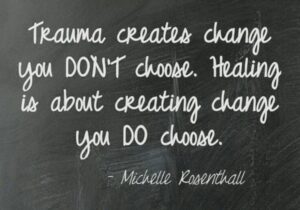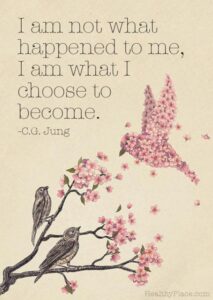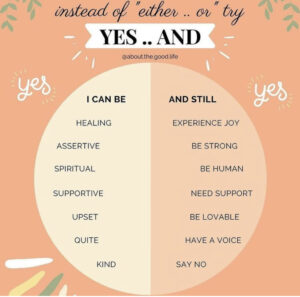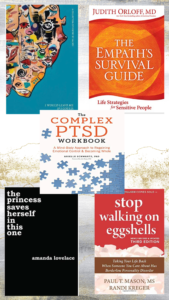Trauma Explained: How Trauma Affects Us All Differently & How Healing Is Possible
We’ve all probably been through some type of traumatic event in our life. Whether it be the tragic death of a young friend in high school, a family member passing, a car accident, natural disaster, sexual abuse, an abusive relationship, losing a job, rape, COVID — the list is long. A lot of us don’t even realize we’ve experienced trauma until years have gone by and we realize we’ve just been on autopilot. Not really “living.”, just going through the motions. It wasn’t until the last couple years I had my “aha” moment and wanted to stop feeling numb from trauma all the time. Everyone’s ability to handle stress and traumatic events is different. Some carry on with no emotional side effects and some suffer for the rest of their lives. With a good therapy regimen and healing process, we don’t have to suffer though. There is light at the end of the tunnel and it IS possible to live a positivity fueled life again where we can feel emotions!
 We all know Mental Health is still widely stigmatized and so is the understanding of how trauma effects brain functions. Trauma is an emotional response to a life altering event. Shock and denial are typical immediately after. Some never progress past this and heal but some have long term reactions. They range in physical effects such as panic attacks, nausea, headaches, impulsive/erratic behavior that isn’t normal for someone, flashbacks, insomnia, night terrors and strained relationships. Some people turn to drugs/alcohol as a way to cope with their trauma. I was one of those people. People often talk about how veterans suffer from Post Traumatic Stress Disorder. This is the exact same thing, just different events or situations. In my healing process I found it’s important to not “compare” my trauma to other people’s. Staying in a victim mentality is what held me back for years. I was angry at the world. Once I learned to be empathetic to everyone’s struggles, I was able to really work through my own. The beauty of the human brain is everyones chemical makeup is completely different. One person’s threshold for trauma may be entirely different than someone else’s. “Dissociation” is quite literally the lack of continuity between thoughts, memories, surroundings, actions, and identity after a traumatic event. There’s been times I’ve been doing something and 4 hours later can’t even connect that I completed the task. Or I didn’t even know who the hell I was anymore sometimes. Constantly feeling disconnected. I was just in autopilot when it comes to dealing with stressful situations. Before Rowen I hadn’t been able to really feel any positive emotions in years. Even up until the day he was born. He flipped a switch in me that made me realize being able to feel emotion is important when creating a strong bond between him & I. For the first time in years I can say I’ve felt true true happiness since having him around.
We all know Mental Health is still widely stigmatized and so is the understanding of how trauma effects brain functions. Trauma is an emotional response to a life altering event. Shock and denial are typical immediately after. Some never progress past this and heal but some have long term reactions. They range in physical effects such as panic attacks, nausea, headaches, impulsive/erratic behavior that isn’t normal for someone, flashbacks, insomnia, night terrors and strained relationships. Some people turn to drugs/alcohol as a way to cope with their trauma. I was one of those people. People often talk about how veterans suffer from Post Traumatic Stress Disorder. This is the exact same thing, just different events or situations. In my healing process I found it’s important to not “compare” my trauma to other people’s. Staying in a victim mentality is what held me back for years. I was angry at the world. Once I learned to be empathetic to everyone’s struggles, I was able to really work through my own. The beauty of the human brain is everyones chemical makeup is completely different. One person’s threshold for trauma may be entirely different than someone else’s. “Dissociation” is quite literally the lack of continuity between thoughts, memories, surroundings, actions, and identity after a traumatic event. There’s been times I’ve been doing something and 4 hours later can’t even connect that I completed the task. Or I didn’t even know who the hell I was anymore sometimes. Constantly feeling disconnected. I was just in autopilot when it comes to dealing with stressful situations. Before Rowen I hadn’t been able to really feel any positive emotions in years. Even up until the day he was born. He flipped a switch in me that made me realize being able to feel emotion is important when creating a strong bond between him & I. For the first time in years I can say I’ve felt true true happiness since having him around.
Healing is so important after a traumatic event, or a series of them. I know what I did won’t work for everyone, but hopefully it can shed some light on the healing process. I’ve been through a lot. Things a lot of people don’t know about. I look like I have it all together on the socials but I still struggle with panic attacks, sobriety from alcohol, depression and anxiety. I learned to live with it. I’ve experienced a lot of tragic deaths in my life, sexual assault, bullying, mental abuse, physical abuse & manipulation by a partner, a traumatic pregnancy — but I don’t let those things define me. It doesn’t make my any less credible as a future Psych clinician either. If we put a halt on hiring people in the psych field who have ever had any type of “psych issue”, we wouldn’t have anyone to work. Everyone faces these things at some point in life. It’s what we do to work to be better that matters. I’m sure I let my trauma affect my character and have hurt some people in the past. The saying “hurt people, hurt people” is true. So, if you’re one those people reading this, just know that I’m truly sorry.

I’ve been in and out of therapy most of my life. I was consistent in my early 20’s. You don’t have to have an “issue” to see a therapist. Sometimes it’s nice to just have someone listen and give unbiased feedback. In December 2018, I found a Trauma & Addiction program for women in Princeton, NJ. I had just lost 3 people in a matter of 72 hours, I was a wreck. All I wanted to do was drink. That program really saved me. So did my therapists who stuck with my most of my adolescent/young adult life. I still see them today. I had an alcohol dependence issue as a direct result of the trauma. When I worked through processing those events, I didn’t feel the need to numb with alcohol anymore. I wasn’t an alcoholic. The trauma made me an alcohol dependent. I truly believe that’s the cause of a lot of our “addiction” issues in society today. As of today, I don’t even really enjoy the taste of hard alcohol. I haven’t gotten drunk in three months. I can have a drink without going overboard. It’s a liberating feeling when I used to plan my weekends around how drunk I was going to get. I tried to really steer clear of medication and rely on therapy to get me through. It worked up until Postpartum Depression reared its head at me. Dealing with Rowen’s care, being a single mom, not having the emotional support of a partner and trying to finish school really wore me down. I was feeling alone in everything I did. I had support, but it wasn’t someone to come home to at the end of the day to hug me and tell me everything is going to be okay. I slipped back into that drinking pattern for a short amount of time after Rowen was born. I was dealing with a lot of stress from people who I thought were suppose to support me and have my back. Some people saw it as me just “getting a night off” to myself. I knew it was a slippery slope back into old habits given the immense amount of stress and trauma I had endured the months prior. In December I finally decided it was time for anti-depressants at 6 months postpartum. I have a history of medication trauma so I was apprehensive. It is the BEST thing I have done for myself in years. I don’t think I’ll always need it, but until I adjust to this new season of life it’s what’s best for me.

If you’ve read this far, just know that it is possible to be happy again after being given a shit hand in your life. It’s not your fault you were abused, sexually assaulted, in an accident — whatever the case may be. It’s important to let yourself feel worthy of love again, because YOU ARE. You’re not “damaged goods” just because you’ve had some tough experiences or choices you’ve made in result of your trauma. The healing process is hard and emotional BUT liberating and the best thing you will ever do for yourself. We only have one life to live, I didn’t want to live the rest of it in agony. I encourage you to do the same, you’ll look back years from now with a feeling of happiness that you did.

Here’s links to some of my favorite books that helped guide me through —
I Would Leave Me If I Could — Halsey
The Empaths Survival Guide — Judith Orloff
The Princess Saves Herself In This One — Amanda Lovelace
Stop Walking On Egg Shells — Paul T Mason
Complex PTSD Workbook — Arielle Schwartz
This one is great if you have issues with insurance or finding a program. It’s a workbook laid out like a journal to help you process. It’s always good to start somewhere!